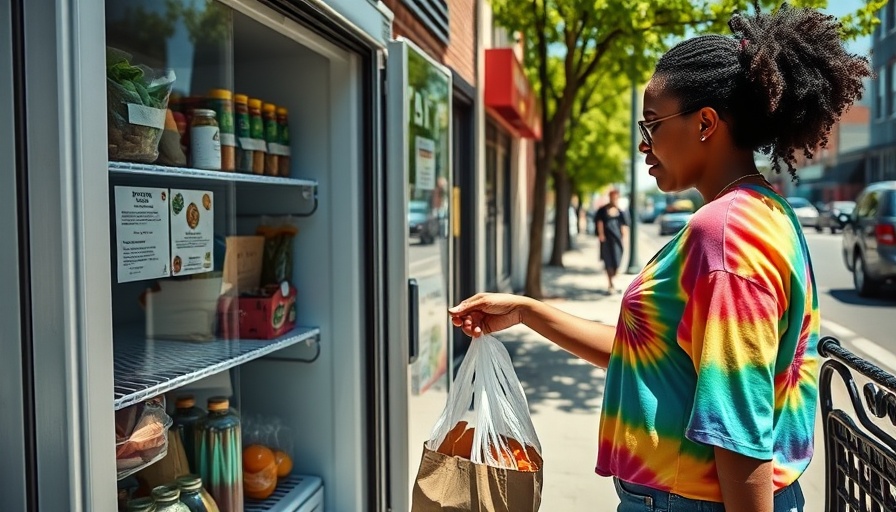
A Lifeline in Food Insecurity: The Emergence of Community Fridges
In the heart of Detroit, a new movement is taking root, empowering communities to combat food insecurity through the installation of community fridges. These fridges offer free food and are accessible 24/7, designed to meet the needs of those who may not have reliable access to nutritious meals. Residents like Belinda Gilmore have played a vital role in this initiative, illustrating how community support can foster resilience and kindness in neighborhoods ravaged by economic hardships.
Driving Change: The Growth of Community Initiatives
The concept of community fridges sprouted nationwide in 2020 as the COVID-19 pandemic exacerbated food shortages and highlighted inequalities in food access. The Field Street Community Fridge, founded by retired social worker Belinda Gilmore, stands as a beacon of hope in Detroit’s Islandview neighborhood—the area grappling with one of the highest food insecurity rates in the city. Gilmore’s journey began in the basement of her church and burgeoned into a citywide effort that exemplifies grassroots activism.
Understanding Food Insecurity: A Growing Concern
Food insecurity affects millions and leads to dire consequences for health and well-being. In Detroit, where many families face economic challenges, the need for reliable food sources has never been more pressing. Gilmore notes an increase in larger families and seniors seeking assistance from community fridges, showcasing the demographic shifts that underline the rising demand for food resources. Community fridges not only provide essentials but also serve as gathering points, promoting social bonds amongst neighbors as they share rather than simply consume.
The Role of Community in Alleviating Hunger
Mark Covington, who runs the Georgia Street Community Collective, echoes the sentiment that sharing food transcends socio-economic divides—"It's not about feeding the poor; it's about feeding people." His story highlights the importance of viewing food as a shared resource, underscoring the transformative power of community-driven solutions. Covington’s urban farm feeds local fridges with fresh produce, allowing people to have access to healthy fruits and vegetables that would otherwise go to waste. This circular relationship emphasizes sustainability within community support initiatives.
Emotional Connections: The Human Side of Hunger
The emotional impact of accessing food in community fridges is profound. Anne Price, a local contributor, shared a moment that struck a chord with her: seeing a young boy and his father searching through the fridge, embodying the silent struggles of many. Such experiences remind us that behind every statistic lies a human story that deserves recognition and response. Community fridges serve as an acknowledgment of shared struggles, fostering a culture of empathy and collective responsibility.
Future Trends: What Lies Ahead for Community Fridges?
As the movement of community fridges gains momentum, there is a promising future for food justice initiatives across the country. These fridges symbolize a shift toward neighborhood resourcefulness and resilience. Cities are beginning to acknowledge the importance of localized food systems and are investing in more sustainable practices to ensure that fresh produce reaches those who need it most. Innovation will be key to expanding this model, allowing even more neighborhoods to create their own installations, tailored to local needs.
Final Thoughts: A Call for Community Engagement
Community fridges are not just coolers filled with food; they are lifelines for hungry residents and crucial parts of urban landscapes. They provide not just sustenance but also solidarity—a small step towards erasing the stigma of food scarcity. Detroit's efforts can inspire similar initiatives across the nation. Engaging in community fridge programs, whether by donating, volunteering, or sharing resources, can transform local neighborhoods and contribute to a larger conversation around food justice.
 Add Row
Add Row  Add
Add 




 Add Row
Add Row  Add
Add 

Write A Comment